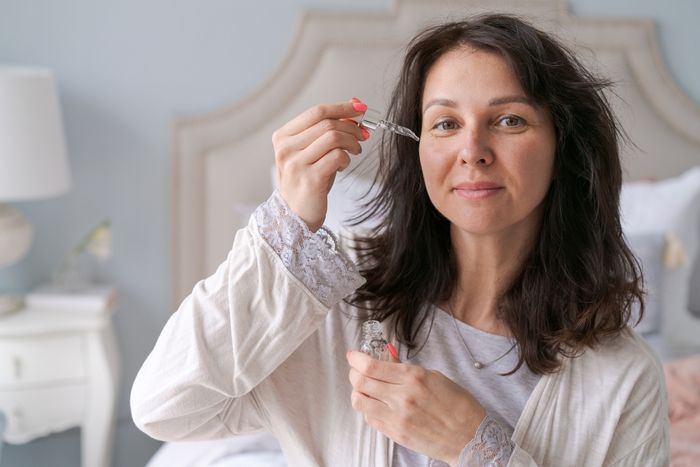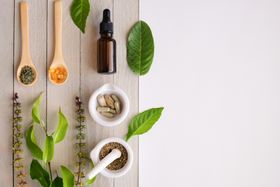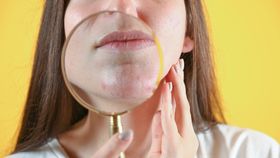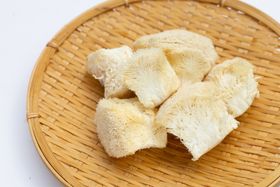How CBD Oil Can Help With Acne
Updated April 14, 2023.

Cannabidiol (CBD) oil is a non-psychoactive cannabinoid found in the cannabis plant that is gaining popularity as an alternative treatment method for many different physical and mental conditions. One of these proclaimed conditions is acne, but is there any truth to the claim?
This article looks at the causes of acne, the benefits of CBD for skin health, and how you can best use CBD to relieve the symptoms of acne.
Causes of Acne
There are many different types of acne that are caused by different conditions, which makes determining its exact nature quite difficult. It is more common in teenagers and typically manifests in either whiteheads, blackheads, pimples, and small or large red bumps that may or may not contain pus.
Despite these differences, the most common causes of them are largely similar and include the following:
- Inflammation
- Clogged pores
- Bacteria
- Excess oils (sebum) formed by the skin
Additionally, acne can be exacerbated by stress, diet, hormones, and even medication.
Benefits of CBD for Skin Health
There are various direct and indirect ways that CBD can benefit the health of your skin, such as the following:
1. Anti-inflammatory and Antioxidative Properties
Research has shown that CBD possesses both anti-inflammatory and antioxidative properties, which can be extremely beneficial in reducing inflammation and signs of oxidative stress generally throughout the body. This can effectively reduce symptoms of acne caused by inflammation or skin ageing.
2. Anti-itching Properties
Certain forms of acne can trigger an itching sensation in the individual suffering from it. Scratching acne can actually worsen the condition, causing it to spread and potentially leaving scars.
Some studies have found that CBD can inhibit certain processes that trigger an itching sensation due to acne, which can potentially prevent the condition from getting worse as well as reduce the risk of acne scars.
3. Inhibition of Sebum Production
Further research has shown that topical application of CBD may inhibit excessive production of sebum in skin cells and could be effective in reducing signs of acne caused by excess sebum and clogged pores.
4. Antimicrobial Properties
In the rare cases that acne is caused by bacterial infections, CBD may still be beneficial. Studies have shown that many different cannabinoids—CBD included—possess antimicrobial and antibiotic activity that could be beneficial for ameliorating acne symptoms.
Can You Put CBD Oil on Your Skin?
Topical application of CBD is one of the more popular methods of using CBD oil, especially when dealing with skin conditions, but is it even safe to use in this way?
As it turns out, applying CBD oil to your skin holds no more risk than other methods like ingestion or even applying CBD oil sublingually. While you may still be sensitive to CBD and experience side effects, you won't experience more side effects if you apply it to your skin than ingest it.
That being said, it is important to remember that topical application of CBD yields the lowest bioavailability—the amount of a substance that your body can absorb—of all the different methods. This means that, in most cases, it would be the least effective method of using CBD. In the case of skin conditions, however, it could present extra benefit in relieving inflammation and damage localised in the skin.
How to Use CBD for Acne and Skin Health
Aside from topical application, CBD can also be inhaled through vapes or cigarettes, ingested in the form of edibles and capsules, or absorbed sublingually.
Each method has its own set of advantages and disadvantages, discussed below:
- Inhalation Contrary to popular belief, inhalation actually has the highest bioavailability and speed of effect, but suffers from the major drawback of potentially causing extreme damage to the airways and lungs.
- Ingestion Ingesting edibles or supplements has the longest overall duration of effect, but also takes comparatively longer for these effects to be felt. Additionally, this method has a lower bioavailability than inhalation and sublingual application.
- Sublingual Widely regarded as the most effective method of utilising CBD oils or tinctures, this method has a fantastic balance of bioavailability, speed of effect, and duration of effect.
With this in mind, treating skin conditions with CBD would be most effective when utilising a more prolonged and general method such as sublingual application in conjunction with topicals.
Furthermore, CBD may work far better when used in combination with other components that offer similar benefits, such as various species of functional mushrooms. This idea forms the basis of our M2CBD formula that we use to develop many targeted products in the form of tinctures, tablets, sprays, and creams. Browse our store for more info.
Is CBD Worth the Hype for Skin?
Although there isn't enough research to state conclusively that CBD products can be used to cure different skin conditions in all people 100% of the time, the existing studies do suggest the immense potential of this with an extremely low risk of side effects.
This allows many individuals to try out CBD for healthier skin without worrying too much. With that in mind, it would appear that, yes, CBD is worth the hype for skin health.







